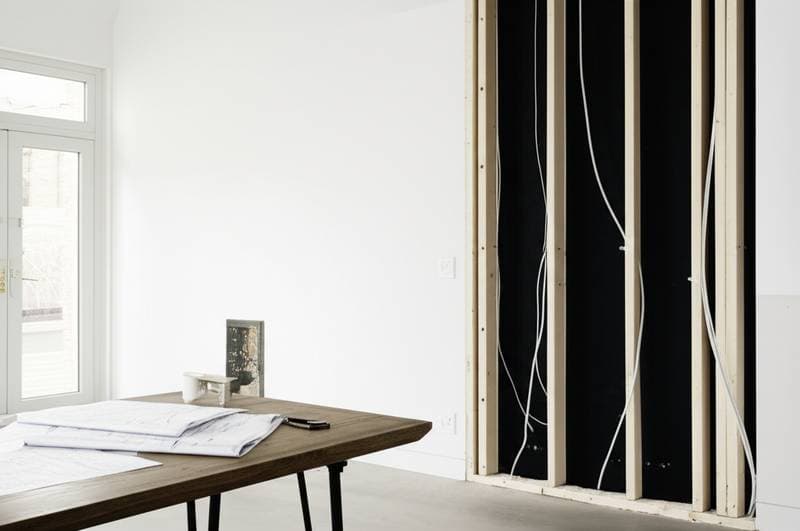The Home Projects That Demand Professional Permits
Many homeowners feel the excitement of tackling a project themselves while browsing a home improvement store. Enthusiasm drives the DIY spirit, yet certain renovations demand more than personal effort. Safety regulations, legal requirements, and structural concerns necessitate building permits and licensed professionals. Understanding these obligations prevents expensive errors, legal complications, and insurance issues.
This guide identifies common projects that require permits, explains their importance, and outlines steps to proceed confidently. Readers gain practical knowledge to protect their homes and investments.
Projects That Typically Require Permits
Local regulations differ across jurisdictions, yet specific categories consistently demand permits and professional involvement. These rules ensure compliance with building codes designed for safety and durability. The following sections detail key areas.
Structural Modifications
Projects affecting a home's framework always trigger permit requirements. Such work influences overall stability and load distribution. Common examples include:
- Removing or installing interior walls
- Altering load-bearing beams or supports
- Increasing living space through additions or expansions
- Transforming attics, garages, or basements into habitable areas
Professionals like engineers or architects must often provide detailed plans for review. Permit fees for basic structural work range from 50 to 150 dollars, while complex additions may cost several hundred dollars based on project scale. Hiring a licensed contractor ensures proper execution and code adherence.
Electrical Installations and Upgrades
Electrical systems pose significant risks of fire and electrocution, leading to strict oversight. Permits become necessary for tasks such as:
- Adding new circuits or upgrading electrical panels
- Increasing service capacity in amperage
- Installing outlets, switches, or lighting in expanded areas
- Routing wiring through walls, floors, or ceilings
Homeowners insurance policies may deny claims for unpermitted electrical issues. Some areas permit homeowners to apply for minor electrical permits, but licensed electricians handle most work to meet national and local standards. Consult your local building department early to confirm requirements.
Plumbing Alterations
Simple tasks like faucet replacements seldom need permits, but modifications to water or drainage systems do. These changes impact water quality and system integrity. Permitted plumbing projects often involve:
- Relocating or installing fixtures such as toilets, sinks, or showers
- Adding exterior faucets or irrigation lines
- Replacing water heaters, sump pumps, or septic connections
- Extending lines to new water or sewer services
Inspections verify secure connections and backflow prevention to safeguard potable water. Fees for residential plumbing permits generally fall between 30 and 150 dollars. Engage a certified plumber to manage applications and installations.
HVAC System Changes
Heating, ventilation, and air conditioning alterations require permits to confirm safe operation and energy efficiency. Faulty systems risk carbon monoxide exposure or high utility costs. Typical permitted work includes:
- Installing or replacing furnaces, boilers, or central air conditioners
- Extending or modifying ductwork
- Adding or rerouting gas lines
- Switching from one fuel source to another, such as oil to natural gas
Licensed HVAC specialists navigate the permitting and inspection phases. They ensure compliance with ventilation codes and efficiency ratings. Schedule professional assessments before starting to avoid rework.
Roofing and Significant Exterior Modifications
Routine shingle replacements may bypass permits if they match existing materials, but deeper changes do not. Exterior projects affect weatherproofing and property lines. Those requiring oversight include:
- Repairing or replacing roof decking and structural elements
- Adding skylights, dormers, or solar panels
- Constructing decks exceeding ground level by more than 30 inches
- Erecting fences taller than six feet or near property boundaries
- Building detached structures like sheds or garages over 120 square feet
Permit expenses vary from 50 dollars for minor work to several hundred for larger builds, depending on size and location. Local zoning laws may impose additional setbacks or design restrictions. Verify with authorities to align with neighborhood standards.
Steps to Handle the Permit Process Effectively
Navigating permits involves organization and communication with local officials. Follow these steps for a smooth experience.
- Outline the project details. Document all planned activities, dimensions, and materials to clarify scope.
- Reach out to your building department. Inquire about required permits, fees, and any exemptions for your area.
- Gather necessary documents. Prepare drawings, equipment specifications, and proof of contractor licensing if applicable.
- Apply and settle costs. Submit materials online or in person; approvals for straightforward projects often arrive within seven days.
- Arrange for inspections. Officials check progress at key stages, such as rough-in and final completion, to confirm code compliance.
When hiring contractors, insist they secure permits in their name. This practice holds them responsible for quality and shifts liability away from you. Track all paperwork to maintain records for future sales or insurance needs.
Protecting Your Home and Finances Through Compliance
Adhering to permit rules extends beyond legal duty; it preserves your property's value and safety. Unpermitted work can complicate home sales, trigger fines up to thousands of dollars, or lead to forced demolitions. Professionals bring expertise that minimizes risks and optimizes results.
Consider consulting a local inspector for borderline projects, even if unsure. This proactive approach avoids surprises and builds confidence in your renovations. Ultimately, informed decisions yield lasting benefits for your living space and peace of mind.
